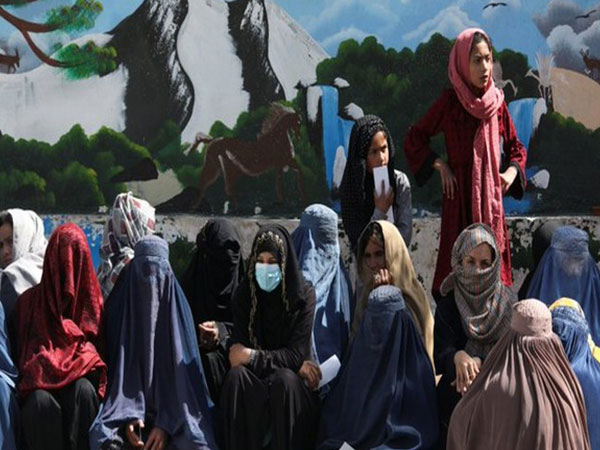
Kabul: Even while aid organisations are still on the ground providing millions of people with life-saving assistance, the United Nations Office for the Coordination of Humanitarian Affairs said that the prohibition on Afghan women working for national and international NGOs had already hindered humanitarian operations, TOLOnews reported.
In its report, OCHA stated that the gap in providing assistance to people included providing food assistance to 11.5 million in January and February, health services to 2.5 million people, safe and clean water to 1 million people, and education to 482,000 children (280,000 of whom were females), the Afghan news agency reported. Women in Afghanistan have been prohibited from working at NGOs for a long time now.
Several women and girls have repeatedly called out the de-facto authorities to provide them with work outside their houses, however, the Taliban has continued with its curbs on women in Afghanistan.
"The ban on female workers has had a negative impact on the economy and the rise in poverty in the country," said economist Mir Shikib Mir.
In the meanwhile, the Taliban stated that women are employed where they are required.
"Regarding the work of women, I should say that in all of the areas where women are needed, they are working there. You are aware this is the case in the Ministries of Public Health, Education, Finance and the department of passports, as well as in the airports and other areas," said Taliban deputy spokesman, Bilal Karimi, according to TOLOnews.
Thousands of women have stayed at home since colleges and schools stopped accepting female students, and there are restrictions on the work that women and girls can do in local and international NGOs.
However, some women and girls have started working, such as by picking up trades or other commercial endeavours, in order to make money.
Since the Taliban regained power in August 2021 after the US exit from the country, women are not allowed to work in the fields of education with domestic and international organisations, in gyms, or in public spaces.